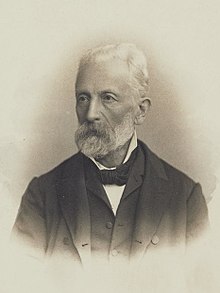Bastian, Adolf

Bio: (1826-1905) German ethnographer and anthropologist. Adolf Bastian is considered the father of German anthropology. He studied law in Heidelberg and biology at the University of Berlin. In 1850, he completed his medical degree in Prague, and after that, he went on a multi-year journey as a ship's doctor. He conducted many expeditions in different parts of the world, where he studied different cultures and collected numerous artifacts. He founded the Berlin Ethnographic Society, was the founder and curator of the Royal Museum of Ethnology in Berlin, and headed the German Royal Geographical Society.
Bastian assumed the existence of the psychic unity of the human species, and he observed the differences between different cultures in the light of different social circumstances and geographical environments, not biological differences. A consequence of such ideas is that he viewed similar cultural achievements between distant cultures as the result of independent convergence in their social evolution. This point of view served as the basis for comparative and evolutionary studies of societies and cultures. He distinguished between folk ideas (Völkergedanken) and elemental ideas (Elementargedanken). He viewed elementary ideas as universal for the human race, while folk ideas would be specific to specific cultures. The notion of universal ideas served as the basis for Jung's archetypes. His books were mostly not translated from German primarily because of Bastian's complicated style. He is the founder of Völkerkunde as a scientific discipline.
Fields of research
Anthropology Character, Social Collective Conscience Community Culture Evolution Geography Human Nature Morality Myth Psychology Race Religion TraditionTheoretical approaches
EvolutionismMain works
Der Mensch in der Geschichte. 3 Bände (1860);
Ethnische Elementargedanken in der Lehre vom Menschen (1895).

